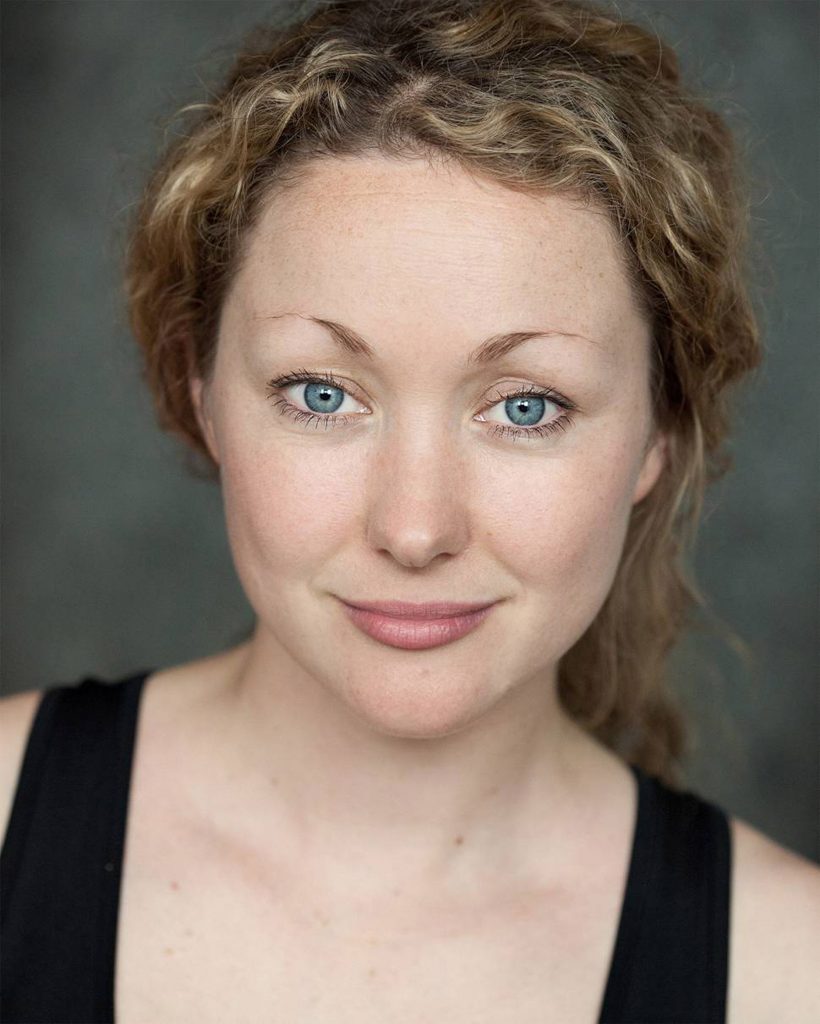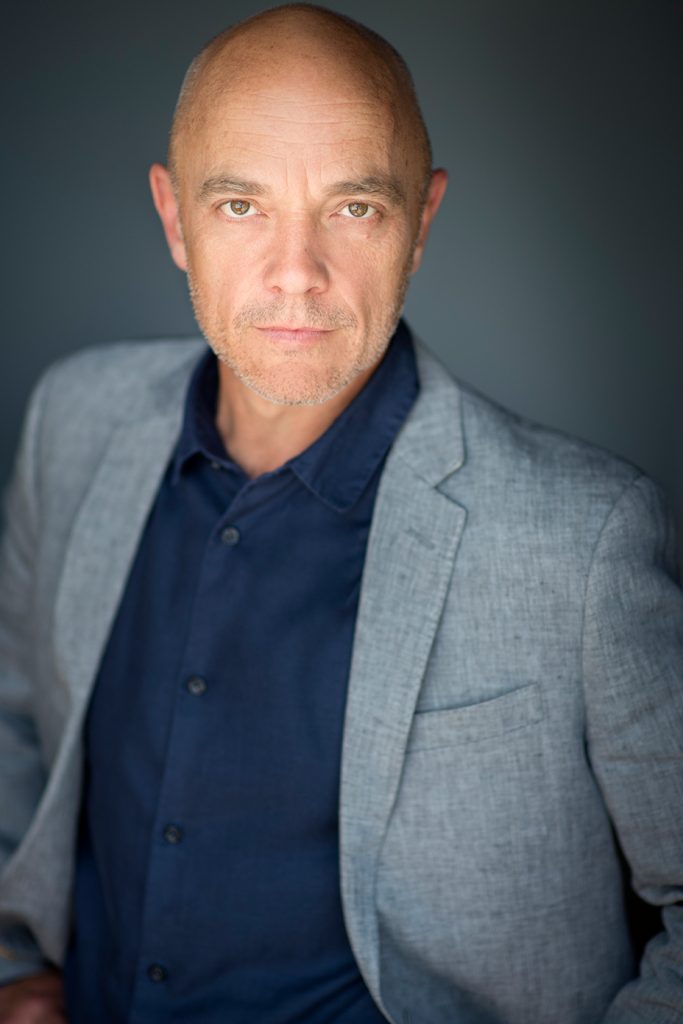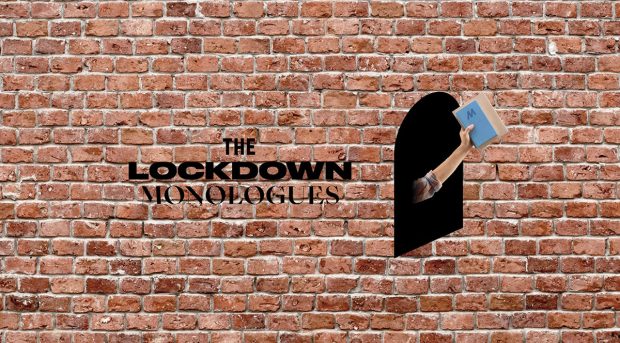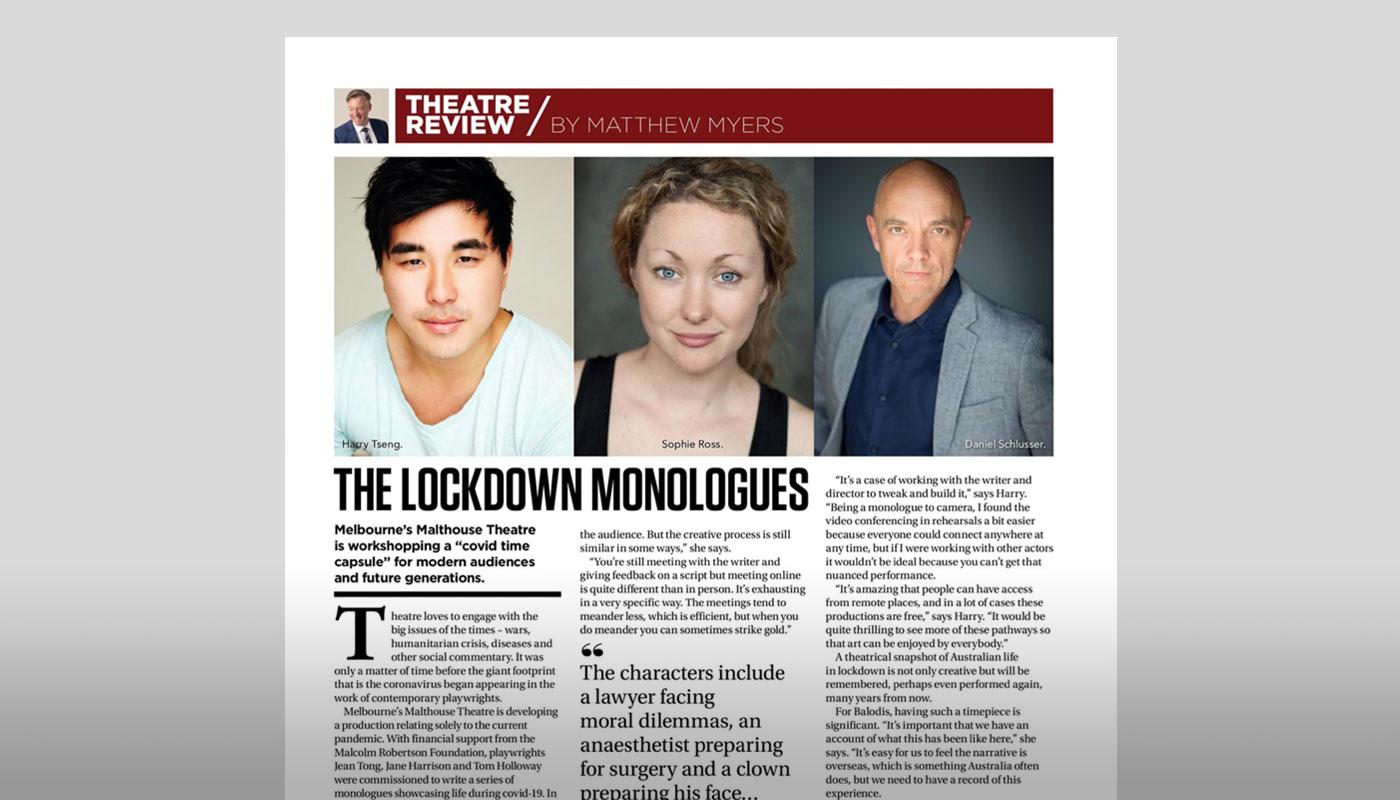As the world still comes to grips with our COVID-19 era, Melbourne’s Malthouse Theatre takes a personal look at our lives during lockdown.
Many theatrical companies have taken on the new norm of online presentations, satisfying the creative desires of both artist and audience. With coronavirus having made its historic footprint, it was only a matter of time before playwrights put pen to paper. In the past we have seen war, humanitarian issues and diseases such as AIDS, provoke great theatre and the great bard himself, William Shakespeare, often included social commentary in his works.

For Harry Tseng, working with the Malthouse Theatre is a dream come true.
Melbourne’s Malthouse Theatre is one such company to develop a production relating solely to the current pandemic. With financial support from the Malcolm Robertson Foundation, playwrights Jean Tong, Jane Harrison and Tom Holloway were commissioned to write a series of monologues showcasing life during Covid-19. In creating something of a time capsule, the writers interviewed Melburnians from different walks of life, to capture the true experience of the past six months.
Creating an online event marks a major shift in direction, not only for the viewer, but also those behind the scenes. For Malthouse’s Director in Residence, Bridget Balodis, there were some challenges.
“It’s new for me to direct something that, even though live, takes place on screen,” says Balodis.
“We’ve been conscious of not making these monologues feel like a screen work, so we’ve had to consider how they are ‘theatre’, and what even makes something theatre. We focused on some key elements, such as the live exchange between the performers and the audience and the congregation of that audience. We also considered if the writing would fees responsive and connect with the now.”
But the creative process is still similar in some ways,” she says.

Sophie Ross performs in The Lockdown Monologues.
“You’re still meeting with the writer and giving feedback on a script, but meeting online is quite different than in person. It’s exhausting in a very specific way. The meetings tend to meander less and you keep more strictly to the agenda, which is efficient, but normally when you do meander you can sometimes strike gold.”
The show consists of nine five-minute monologues performed by local actors including, Daniel Schlusser, Sophie Ross and Harry Tseng. In a sense of community, the writers examined the experiences of people from the COVID-19 frontline, and have written both the expected and unexpected. Example characters include a lawyer facing moral dilemmas, an anaesthetist preparing for surgery and a clown preparing his face.
“It would be easy to pretend this pandemic experience hasn’t changed us, but I think it has.”
For Harry Tseng who has worked on Neighbours and Glitch, working with the Malthouse Theatre is a dream come true, but how does an actor prepare outside the comfort zone of the theatre, especially when developing character?
“I guess my standard procedure has been to analyse the text and then come in with a strong focus,’ says Tseng.
“Following that, it’s a case of working with the writer and director to tweak and build it all. Being a monologue performance to camera, I found the video conferencing in rehearsals a bit easier, because everyone could connect anywhere at anytime. But if I were working with other actors it wouldn’t be ideal, because you can’t get that nuanced performance. But I do feel fulfilled, as I’m most happy surrounded by friends and family. I also think it’s amazing that people can have access from remote places, and in a lot of cases these productions are free. It would be quite thrilling to see more of these pathways so that art can be enjoyed by everybody.”
“It’s easy for us to feel the narrative is overseas, which is something Australia often does.”
A theatrical snapshot of Australian life in lockdown, is not only creative but will be remembered, perhaps even performed again, many years from now. For Balodis, having such a timepiece is significant.

Daniel Schlusser also performs in The Lockdown Monologues.
“It’s important that we have an account of what this has been like here,” she says.
“It’s easy for us to feel the narrative is overseas, which is something Australia often does, but we need to have a record of this experience. It’s interesting for audiences to reflect on how the pandemic has affected those around them, particularly as we start seeing each other again, in person. It would be easy to pretend this pandemic experience hasn’t changed us, but I think it has.”
Productions such as The Lockdown Monologues have already indicated how COVID-19 is changing the direction of theatre. While streaming services have taken on a new life, COVID-19 may stay in the theatre psyche for many years to come.
“I think the time capsule element was a huge driver for us in setting up this work,” says Balodis.
I’m not sure whether people will continue making works that talk about COVID-19 as directly as the Lockdown Monologues, but I think the experience of this pandemic will certainly draw out other conversations. It’s going to take some time for the industry to recover and it’s going to impact what kind of work we’ll see over the next couple of years.”
For more visit: malthousetheatre.com.au






